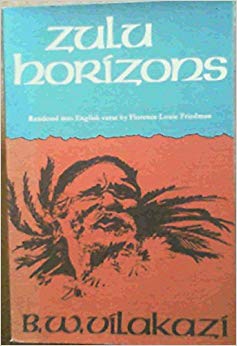Benedict Wallet Vilakazi was a South African poet, educator, and author. He is a pioneering figure in the creation of Zulu literature. In his poetry, he combined elements of the tribal oral tradition with European poetic techniques.
Background
Benedict Wallet Vilakazi was born on January 6, 1906 at the Groutville Mission Station near Stranger, Natal, South Africa (now KwaDukuza, KwaZulu-Natal, South Africa). He was a fifth child of Mshini ka Makhwatha and Leah Hlongwane. His parents were Zulu tribe members and devout Christians.
Education
In 1923 Benedict Vilakazi received a teaching certificate from St. Francis College (Mariannhill Secondary Independent School). In 1934 he obtained a Bachelor of Arts degree from the University of South Africa. Because the University of Witwatersrand was the only institution to provide advanced courses in Zulu language and literature, Vilakazi’s chosen field, he postponed further study until 1936 when he was given a language assistantship in their Bantu Studies Department, becoming the first black South African to teach white South African students at the university level. In 1946 he became the first black South African to earn a Doctor of Philosophy degree.
Career
After obtaining his teaching certificate in 1923, Benedict Vilakazi instructed classes at Mariannhill College (now St Francis College) and later at the Catholic seminary in Ixopo. During this period, Vilakazi wrote his first novel, Nje nempela ("Really and Truly"), and first volume of poetry, Inkondlo kaZulu, both of which received immediate critical acclaim. He is an author of Noma nini (1935), UDingiswayo kaJobe (1939), Nje nempela (1944).
Along with his growing fame as a poet and novelist, Vilakazi was developing a reputation as a linguistics scholar, publishing respected essays on Zulu language and literature. With the head of the department, C. M. Doke, Vilakazi wrote a Zulu-English dictionary.
Views
As a poet, Benedict Vilakazi was strongly influenced by the European Romantics, whose sense of alienation and belief in individual freedom and the perfectibility of humanity matched Vilakazi’s feelings about the subjugation of black South Africans and his optimism about change. The influence is most evident in such early poems as "Inqomfi" ("The Lark") and "We moya" ("Hail, Wind"), which are patterned after Percy Bysshe Shelley’s "To a Skylark" and "Ode to the West Wind," respectively.












